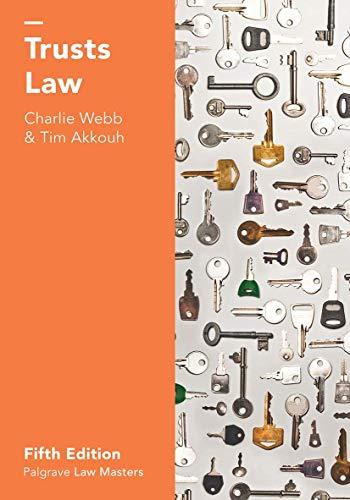Question
Luke Stephens downloaded the Lyft ride-share app and attempted to request a ride in New York City. His requested ride did not appear after the
Luke Stephens downloaded the Lyft ride-share app and attempted to request a ride in New York City. His requested ride did not appear after the estimated 10-minute arrival time elapsed, and Stephens was unsuccessful in his attempts to contact the driver. Stephens received a notification from Lyft that he would be charged $10 for canceling his ride, but he denies canceling. Stephens later experienced similar incidents in Toronto and Irvine, California. Stephens sued Lyft on behalf of himself and a similarly situated class of Lyft users, alleging that Lyft purposely was generating million of dollars in cancelation fees through deceptive, false, misleading, and illusory business policies and practices.
According to the testimony of the Lyft engineer manager responsible for overseeing the rider sign-up and registration process, which was given during a pretrial hearing, no Lyft account could be created unless the user navigated through the screen containing a notice stating, "By creating the Lyft account, you agree to the Terms & Conditions and Privacy Policy." The same screen required the new registrant to click "DONE" in order to create an account. The phrase "Terms & Conditions and Privacy Policy was displayed in a clickable box that linked a user to the pages containing the then current terms and conditions was displayed in a clickable box that linked a user to the pages containing the then-current terms and conditions and privacy policies. The Terms & Conditions included the following provision:
ARBITRATION. You agree that any dispute, claim or controversy arising out of or relating to these Terms or the breach, termination, enforcement, interpretation or validity thereof or the use of the Services (collectively, "Disputes") will be settled by binding arbitration between you and Lyft, except that each party retains the right to bring an individual action in small claims court and the right to seek injunctive or other equitable relief in a court of competent jurisdiction to prevent the actual or threatened infringement, misappropriation or violation of a party's copyrights, trademarks, trade secrets, patents or other intellectual property rights. You acknowledge and agree that you and Lyft are each waiving the right to a trial by jury or to participate as a plaintiff or class or any purported class or representative proceeding. Further, unless both you and Lyft otherwise agree in writing, the arbitrator may not consolidate more than one person's claims and may not otherwise preside over any form of any class or representative proceeding.
The Lyft engineer manager presented evident showing that Stephens had registered and clicked "DONE," indicating his agreement to the Terms & Conditions. Thus, Lyft filed a motion to compel arbitration. What are the arguments for both Lyft and Stephens and will Lyft's Motion to Compel Arbitration be granted or denied by the Court?
Step by Step Solution
There are 3 Steps involved in it
Step: 1

Get Instant Access to Expert-Tailored Solutions
See step-by-step solutions with expert insights and AI powered tools for academic success
Step: 2

Step: 3

Ace Your Homework with AI
Get the answers you need in no time with our AI-driven, step-by-step assistance
Get Started


